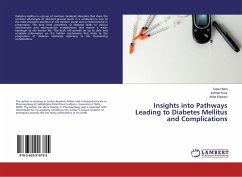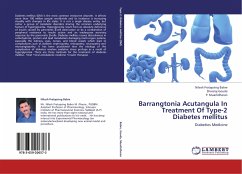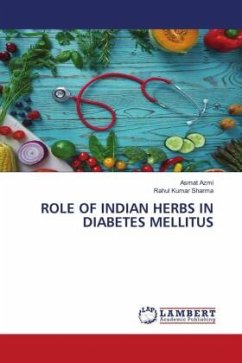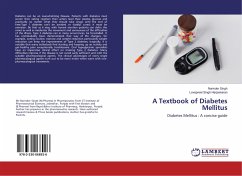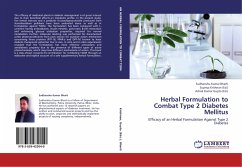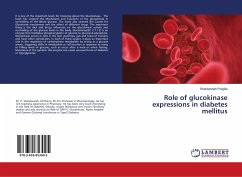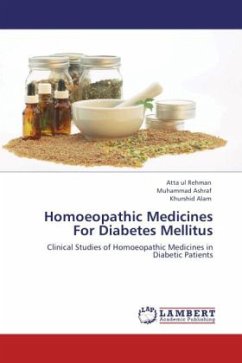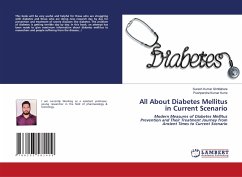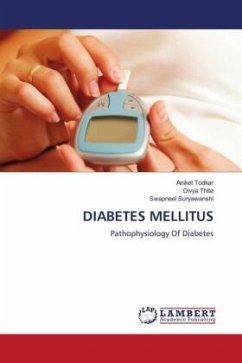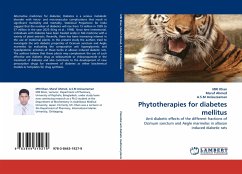
Phytotherapies for diabetes mellitus
Anti diabetic effects of the different fractions of Ocimum sanctum and Aegle marmelos in alloxan induced diabetic rats
Versandkostenfrei!
Versandfertig in 6-10 Tagen
39,99 €
inkl. MwSt.

PAYBACK Punkte
20 °P sammeln!
Alternative medicines for diabetes; Diabetes is a serious metabolic disorder with micro- and macrovascular complications that result in significant morbidity and mortality. Statistical Projections for India suggest that the number of diabetics will rise from 15 million in 1995 to 57 million in the year 2025 (King et al., 1998). Since time immemorial, individuals with diabetes have been treated orally in folk medicine with a variety of plant extracts. Recently, there has been increasing interest in the use of medicinal plants. In the present study the authors tried to investigate the anti diabe...
Alternative medicines for diabetes; Diabetes is a serious metabolic disorder with micro- and macrovascular complications that result in significant morbidity and mortality. Statistical Projections for India suggest that the number of diabetics will rise from 15 million in 1995 to 57 million in the year 2025 (King et al., 1998). Since time immemorial, individuals with diabetes have been treated orally in folk medicine with a variety of plant extracts. Recently, there has been increasing interest in the use of medicinal plants. In the present study the authors tried to investigate the anti diabetic properties of Ocimum sanctum and Aegle marmelos by evaluating the comparative anti hyperglycemic and hypolipidemic activities of these herbs in alloxan induced diabetic rats. The authors believe that these plants may complement the use of such effective anti diabetic drug as tolbutamide or chlorpropamide in the treatment of diabetes and also contribute to the development of new prescription drugs for treatment of diabetes as either biochemical models or templates for drug synthesis.



